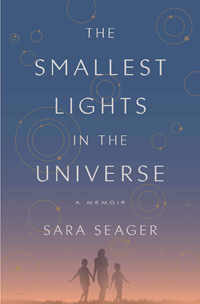 Sara Seager, The Smallest Lights in the Universe: A Memoir (New York: Crown, 2020), 308pp.
Sara Seager, The Smallest Lights in the Universe: A Memoir (New York: Crown, 2020), 308pp.
For a little over eight years (1995 to 2004) I was a campus minister at Stanford University as a staff member with an organization called InterVarsity. In particular, I worked with the faculty at Stanford. We had three groups that met on a weekly basis: one in the faculty club, one at the hospital, and then one at the linear accelerator.
That experience led me to think long and hard about a complicated question: what does a work-life balance look like for people who are in careers that place heavy demands on nearly every aspect of their lives? Can you be successful both at home and at work? What does that look like, or what does that even mean? This question led to some dark humor, when one professor joked that "behind every great man is a trail of human wreckage."
These questions are the subject of Sara Seager's memoir. Seager is a professor of astrophysics and planetary science at MIT. In 2013 she was awarded a MacArthur Foundation "genius grant." She's a leader at the forefront of the search for the first earth-like exoplanets and signs of life on them. Time Magazine named her one of the twenty-five most influential people in space research.
So, her career puts huge demands on her life. Making things even more complicated, she became a widow and single mother of two children at the age of forty, which forced her to ask very hard questions about her work-life equation. Seager has never been content to ignore the even more important demands of her family and marriage. Why sacrifice what is more important merely to get a couple lines written about you in the history of astrophysics, she asks? And yet, she's passionately in love with her work, too. This memoir is an honest, compassionate, at times very funny, and articulate account of how she connected the dots between her love of the starry heavens above and the everyday realities of life at home on earth.
Dan Clendenin: dan@journeywithjesus.net


